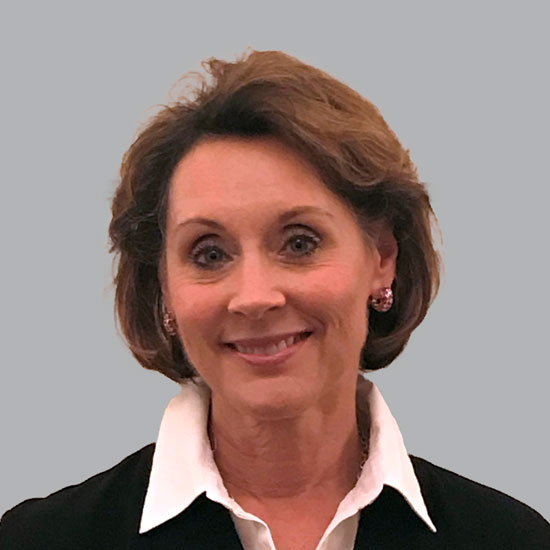2022 Oracle and Workday Higher Education Implementation Partners Differentiators
Former Analyst

Tambellini recently completed its Oracle and Workday implementation partner series for finance, human capital management, and student that evaluated nine leading services firms in higher education. Three of the vendors offer Oracle Cloud implementation services (Drivestream, Highstreet, and Sierra-Cedar), three provide Workday deployment services (Alchemy, Avaap, and Collaborative Solutions), and three offer implementation services for both Oracle and Workday (Accenture, Deloitte, and Huron). All of these services firms are growing their higher education practices at a rapid pace, which is indicative of the market’s adoption of modern cloud-native enterprise administrative applications. This blog post focuses on several key differentiators institutions should consider when selecting an implementation partner.
Product Experience in Higher Education
While most implementation partners have years of experience serving the higher education market, you’ll also need to determine the level of experience a firm’s consultants have with the selected product(s) in higher education. Deploying Oracle and Workday applications in the financial or manufacturing industries differs from deploying them in higher education, with its unique business processes and compliance requirements. Understanding the nuances of higher education allows consultants to guide institutions through configurations more accurately and helps ensure that institutions leverage the platform’s core functionality for optimal results.
Oracle and Workday services firms across higher education are experiencing significant growth and are constantly looking to increase their bench in this area. However, Oracle and Workday skillsets are in high demand, and requiring additional skill with higher education experience shrinks candidate pools even further. Institutions that engage with partners that cannot provide a project manager and practitioners with Oracle or Workday experience in higher education are setting themselves up for increased project risk and possible project rework.
Depth and Breadth of Services
Services firms come in all shapes and sizes. While some firms offer a more narrow and specialized set of services, other consultancy groups─especially larger firms─have very broad and deep skillsets that span way beyond Oracle and Workday. Several implementation partners that service higher education have core implementation teams with cross-functional expertise and focused knowledge in other technologies, such as analytics, AWS, CRM, cybersecurity, data governance, data warehouse, integration platforms, and more. Before starting an implementation project, institutions should assess their resource requirements to identify technology areas where they may need additional services.
Most implementation firms have added services for post-go-live support in the past two years. Each firm has a different slant to its offerings, ranging from ad hoc annual support to full-time support, to extended support services where the services firm acts as a central point of contact for managing questions and vendor issues. Tambellini is seeing the majority of institutions that are deploying Oracle and Workday sign up for this type of service, at least for the first year following go-live.
Accelerators and Toolkits
Accelerators and toolkits are a key differentiator across implementation partners, even more so than implementation methodology, since Oracle and Workday have recommended methods for cloud deployment. Oracle implementation partners leverage the Oracle Unified Method (OUM), which is generally adapted for higher education and enhanced with proprietary augmentation. Workday offers two deployment options: Workday Launch (highly prescribed) and Workday Your Way (more flexible). In addition, some of the services firms provide a hybrid Workday deployment option that lies in between Launch and Your Way.
Accelerators and toolkits are important because they provide efficiencies that facilitate aspects of the implementation that can decrease the level of effort and overall implementation timeline. Many accelerators have been specifically designed for Oracle or Workday and range from automated real-time project management to change management, data conversion, prebuilt integrations and report templates, preconfigurations, testing scripts, and more. Implementation partners continue to add to their list of accelerators with each deployment project.
Toolkits that facilitate data mapping and conversion are extremely helpful in decreasing the time and effort it takes to move institutional data from its legacy system(s) to the modern selected platform. As part of an implementation partner evaluation, institutions should seek out firms with previous experience migrating other institutions from their legacy systems to Oracle or Workday.
Change Management
Change management is a core component of any enterprise deployment. While all implementation partners offer change management services, the depth and experience of their practice and consultants vary significantly. Some services firms place a heavy emphasis on change management and include it as part of their standard implementation methodology, and others respond to institutional demand. Some implementation partners also package change management as a separate offering that can span both Oracle and Workday implementations.
Institutions should research the types of change management offered by each partner evaluated and the experience of its practitioners, including certifications. Leading change management certifications include Prosci Change Management Certification, Certified Change Management Professional (CCMP), and Change Management Institute (CMI) Certification. The execution of change management is typically jointly shared by the institution and the implementation partner. Institutions with internal change management expertise can rely less on the partner.
Categories
Share Article:

Other Posts From this Author:
© Copyright 2025, The Tambellini Group. All Rights Reserved.